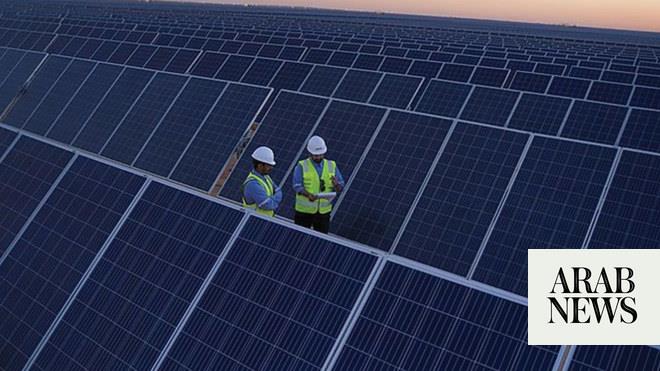
Agriculture in developing countries has suffered from the impacts of climate change
Global food system is heavily reliant on animal agriculture, which contributes significantly to emissions
BAKU: Agriculture should be a central focus of global efforts to mitigate climate change, experts told Arab News on the sidelines of the COP29 UN climate change conference in Baku, Azerbaijan.
“Agriculture is a victim of climate change because in agriculture we have the most vulnerable and low-income people,” Aditi Mukherji, director of climate change adaptation at the Consortium of International Agricultural Research Centers, told Arab News.
She added: “We have 500 million smallholder farmers who are getting affected by climate change. That is through droughts, floods, extreme rainfall and high temperatures. They’re losing their production. They’re losing their livestock, their crops, everything.”
According to Mukherji, agriculture also contributes to about one-third of overall global greenhouse emissions, and lowering this will reduce pressure on the agricultural system.
“If you take the whole agrifood system, that is from the time of production all the way to consumption and everything in between, like the pre-processing, the processing, the industrial part of it, it contributes about one-third, 33 percent of the global greenhouse gas emissions,” she said.
“One very low-hanging fruit is reducing loss and waste. So, when in the food system, almost one-third of the food is overall wasted or lost in production or during the consumption process. We buy food that we do not eat, reducing that would reach a huge amount of reduction in greenhouse gas emissions,” Mukherji said.
Emissions from agricultural systems can also be mitigated if technologies such as solar energy and recycled water are implemented on a wider scale, Maimunah Sharif, mayor of Kuala Lumpur, told Arab News.
“In Kuala Lumpur we are now doing composting and we are also doing urban farming. So, we are encouraging the community to be self-sufficient; we are using the composting and using the small areas in urban farming at the same time, using technology and hydroponics,” Sharif said.
Agriculture in developing countries has suffered from the impacts of climate change. In Senegal, the environmental crisis has led the country to secure food for its population by importing produce from other countries.
Baba Drame, technical adviser on sustainable development at Senegal’s Environment Ministry, told Arab News: “Senegal is a very vulnerable country. As you may know, we are an LDC (least-developed country) and agriculture is one of the most important activities for the development of our country.
“The most important parts of the foods people use in my country are imported from other countries. We do our best in order to develop agriculture, mainly production of rice, corn and so on.
“But we are well affected by climate change because all our food system is based on the rain,” he added.
According to Drame, for the last two years, the rain in Senegal has been irregular, leaving the country facing food insecurity.
Transforming food systems involves rethinking consumption patterns. The global food system is heavily reliant on animal agriculture, which contributes significantly to emissions.
Shifting toward plant-based diets and reducing food waste can dramatically decrease the carbon footprint associated with food production.
“In many parts of the world, particularly in the high-income countries, there is a very high consumption of animal-sourced proteins, and those are very high causes of emissions. So, eating a more sustainable, balanced diet that is plant-based would be a very good source of reducing emissions,” said Mukherji.












